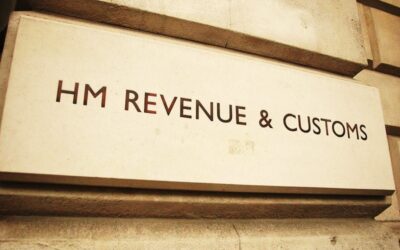The BBC has set aside up to £12m to pay off the past tax liabilities of BBC presenters being pursued by HMRC for tax avoidance using personal service companies, the latest BBC annual report has revealed.
However, the National Audit Office (NAO) has questioned whether the payments are a legitimate use of BBC funds, and has issued a qualified opinion of the BBC accounts as a result.
The NAO highlights the difficulties that the BBC and other organisations have got into when seeking to avoid tax, and the thorny issue of who pays when tax avoidance schemes go wrong.
The BBC started to employ presenters via personal service companies from the late 1990s. A personal service company is a company that is set up to manage the affairs of an employee. Instead of contracting with the employee directly, the BBC contracted with their company.
This benefited the BBC because it would mean that the employee would be responsible for their tax affairs, and the corporation would no longer need to operate PAYE or pay employers national insurance. The presenter could minimise their tax payments by paying themselves a small wage through their company and receiving the rest of their income in dividends. This had a substantial tax benefit.
The BBC got into these kinds of arrangements in a big way. Previously the BBC has said that 800 of their presenters were at risk of tax investigations by HMRC, 300 of them for their use of personal service companies.
The other 500 were employed as freelancers through other schemes not involving personal services companies which the BBC is now also facing a large bill for. It is not made clear in the BBC annual accounts the nature of these schemes, however, it is possible that these are the kind of loan based tax avoidance schemes now being caught by the HMRC Loan Charge. It is also not clear what the liability is on these schemes. The total tax and litigation provision in the BBC accounts is £40m, this includes other money set aside for other issues and the £12m for liabilities arising from the personal service company schemes.
In the case of presenters that did not use a personal service company, the issue is quite straight forward. The presenters should have been considered as BBC employees and the Corporation should have operated a PAYE system. In these cases the BBC has agreed to pay the bill.
With personal service companies the issue is a little more complicated. HMRC has in these cases said that the liability to pay is with the employee, on the basis that in the end, the decision on whether or not to avoid tax was in the control of the presenter. If their personal service company simply paid them a salary, then there would be no tax avoidance.
The position of the BBC was previously also that it was up to the presenters to pay any tax liability, but, recognising the fact that it had a role in encouraging such schemes, it would set up a mediation process which would allow some presenters to negotiate with the BBC about whether they could claim back any of the money owed.
As disclosed in this year’s accounts, the BBC has now given up on this mediation process and has contacted HMRC about settling the historic tax liabilities of those employed by personal service companies directly. In some cases the BBC is making payments to presenters themselves to pay off their tax liabilities. The BBC has agreed to pay the difference between any tax paid by a personal service company and the liability that would have been due if the presenter was directly employed. This represents all the benefits of any avoidance scheme entered into by the presenter. The BBC estimates that the liability for this will be £12m.
Gareth Davies, the Auditor General, has taken a critical view on whether this is a good use of BBC funds, with the audit statement containing the following qualification:
I consider that the BBC, in committing to make such payments to HMRC, is settling, ex gratia, the tax liabilities of third parties. I therefore consider that this expenditure does not accord with the BBC’s Charter obligations with respect to the principle of regularity and have qualified my opinion on regularity accordingly.
In other words, in the view of the NAO, the BBC is voluntarily paying the tax bills run up by its presenters which are not the BBC’s responsibility to pay.
There is no doubt that this is a difficult issue. On the one hand, the contracts were made with the personal service companies, and then it was up to the people operating the company (the presenter) how they paid themselves (i.e. how much in dividend and how much in salary).
On the other hand, it is clear from the testimony of many of the people involved in these schemes that the BBC was complicit in these arrangements. The corporation drew up the contracts and actively encouraged its presenters to organise their affairs in this way. Indeed, some presenters have said they were forced to use such arrangements. There is no doubt that the BBC benefited from the arrangements.
The BBC position as set out in the latest annual accounts is that they are taking full responsibility for any tax avoidance engaged in by their presenters via the personal service company route. Whether or not the BBC encouraged such practices and regardless of whether they should have, the settlement represents a good deal for many of the presenters involved.
The settlement of tax liabilities represents a significant increase in pay for the presenters that used personal service companies, vis-a-vis their colleagues who were employed directly by the BBC and who would have had their income tax deducted from their payslips.
Photo from Chief Moamba on Flickr used under the creative commons license



